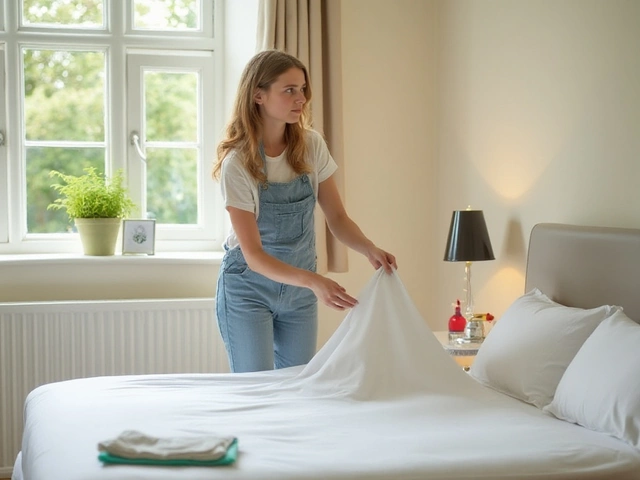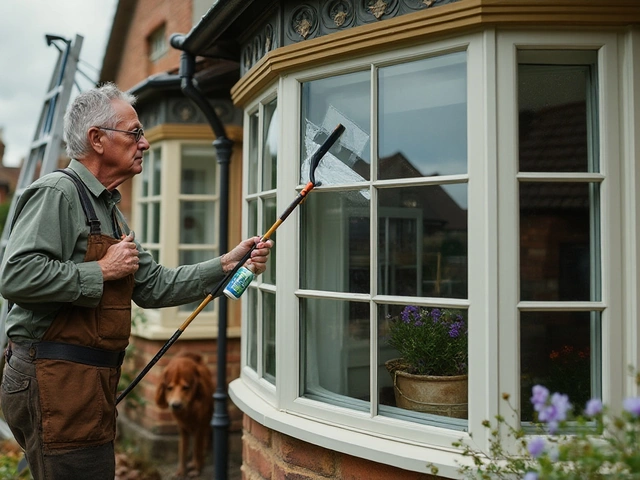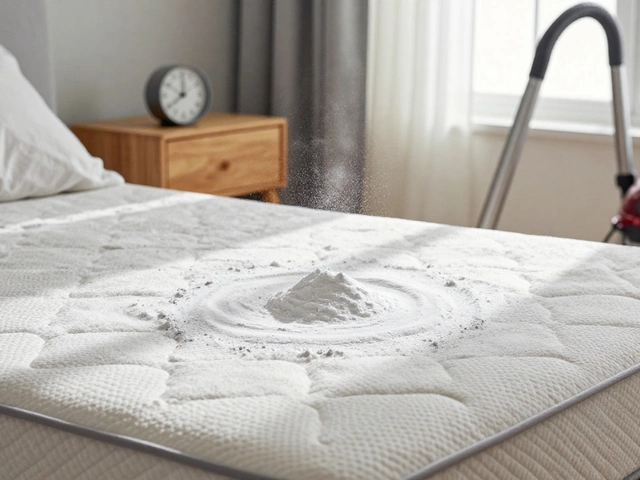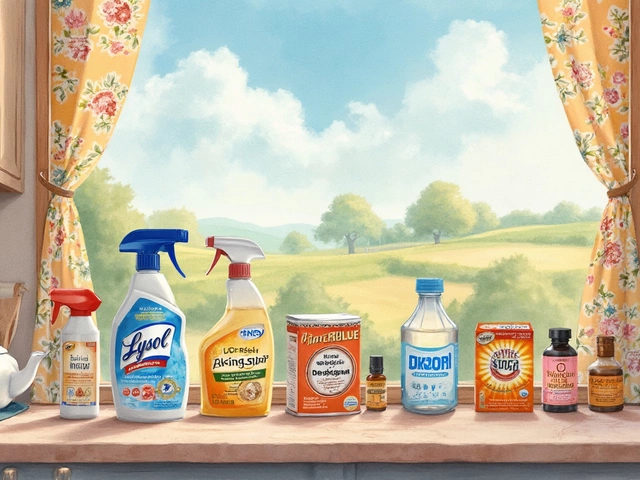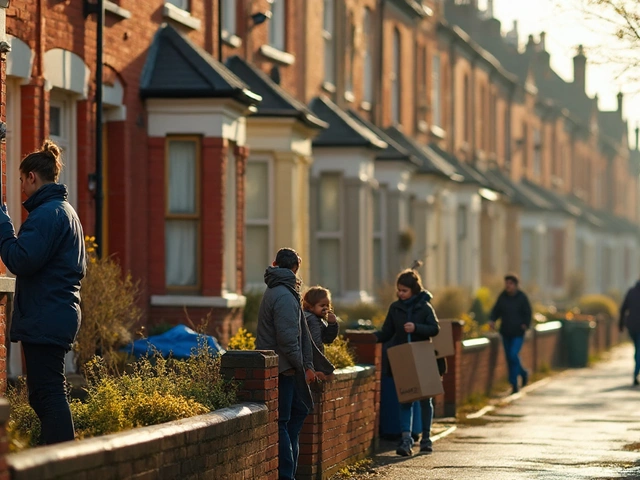In a world increasingly mindful of the environment, making your cleaning practices eco-friendly is more important than ever. Embracing a sustainable approach not just cleans your living space but also does wonders for Mother Earth.
From harnessing the power of simple ingredients like vinegar and baking soda to investing in reusable cleaning tools, there are myriad ways to clean green. By choosing methods and products that minimize harm to the environment, we can create healthier homes and contribute to a cleaner planet.
Let's delve into the art of eco-friendly cleaning, exploring effective strategies and products that leave your home spotless and your conscience clear.
- Understanding Eco-Friendly Cleaning
- Natural Cleaning Products to Use
- Reducing Waste in Cleaning Practices
- Energy-Efficient Cleaning Techniques
Understanding Eco-Friendly Cleaning
Eco-friendly cleaning is about more than just keeping our homes tidy; it’s a commitment to living in harmony with the environment. At its core, eco-friendly cleaning involves using methods and products that reduce negative impacts on the earth. Many conventional cleaning products contain harmful chemicals that can contaminate water sources, contribute to indoor air pollution, and even impact our health. Embracing green cleaning means opting for solutions that are not only safe for the environment but also for our own well-being.
One key aspect of sustainable cleaning is choosing products derived from natural ingredients. These alternatives are often biodegradable and free from toxic chemicals like ammonia and phosphates, which are commonly found in commercial cleaners. Ingredients such as vinegar, baking soda, and lemon juice are not only effective but also gentle on surfaces and the planet. The transition to non-toxic cleaning products can significantly lessen the environmental footprint of your household.
It's interesting to note that an average household emits around 21,000 pounds of carbon dioxide annually, partly due to the use of energy-hungry appliances and chemical-laden cleaning products. By adopting sustainable living habits, including using eco-friendly cleaning methods, you can markedly decrease these emissions. A recent study highlighted that if every U.S. household replaced one bottle of petroleum-based detergent with a plant-based alternative, it would save near 150,000 barrels of oil—enough to heat and cool over 8,500 homes a year.
An essential strategy in eco-friendly cleaning is understanding the importance of reducing packaging waste. Many green products are designed with minimal packaging or are offered in bulk, minimizing plastic waste. Consider supporting brands that offer refill options or those packaged in recycled materials. Simple practices like using reusable cleaning cloths instead of disposable wipes also cut down on waste.
Eco-friendly cleaning is as much about methodology as it is about the products used. It's worth noting how energy efficiency plays a role; for example, running dishwashers and washing machines with full loads conserves water and energy. Implementing these habits costs nothing yet offers significant environmental savings. A remarkable figure is that washing clothes in cold water can save up to 80% of the energy used per load when compared to hot water washes.
"Our children's future depends on how we preserve our natural resources today," stated the Environmental Protection Agency in an update on sustainable practices. Integrating eco-friendly cleaning habits at home is a solid step towards ensuring a healthier environment for generations to come.
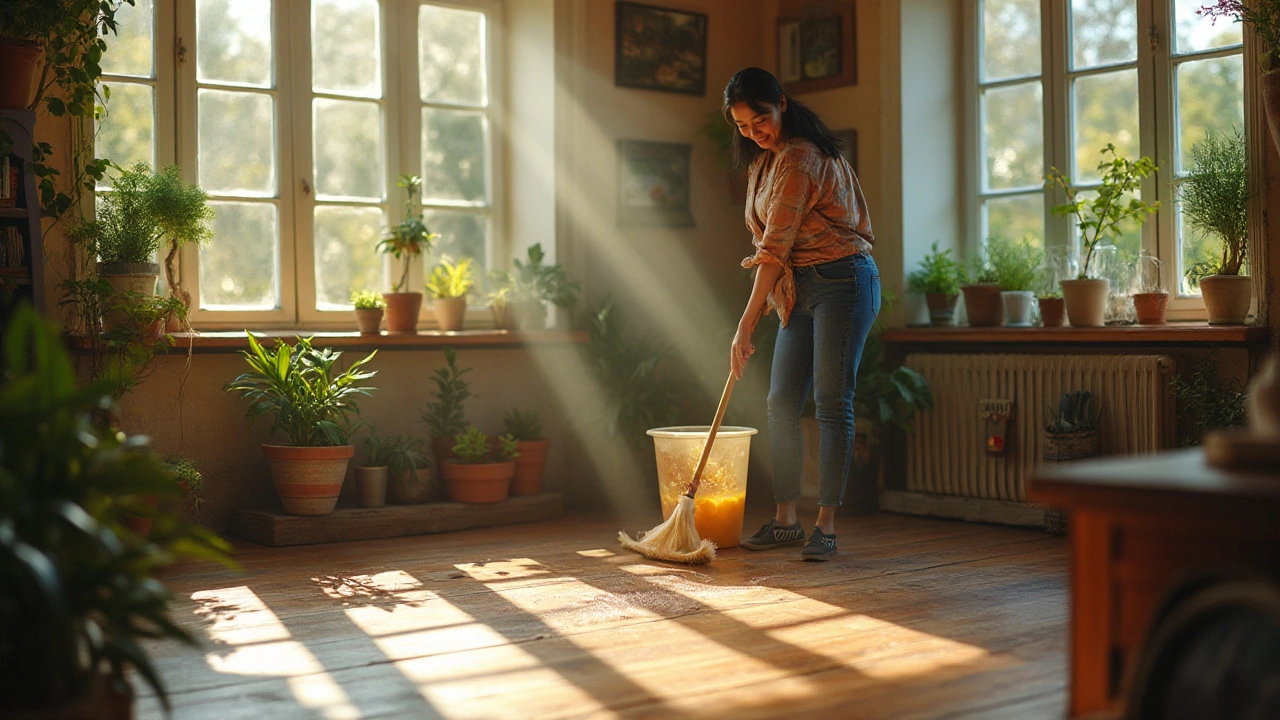
Natural Cleaning Products to Use
When it comes to maintaining a clean and healthy home, utilizing eco-friendly cleaning products is a fantastic way to ensure safety, not just for the environment but for your household as well. One of the most well-loved products in this realm is vinegar. Known for its acidic nature, vinegar works wonders in cutting through grease, removing stains, and even disinfecting. It can be mixed with water for a simple yet effective all-purpose cleaner. A well-known chef once mentioned, "Vinegar is my secret weapon. It cleans up spills in the kitchen and keeps surfaces sparkling." Baking soda, another household staple, paired with a little elbow grease, can eliminate tough spots or deodorize spaces.
The popularity of essential oils has skyrocketed in recent years not just for aromatherapy, but also as powerful cleaning agents. Oils such as tea tree, lavender, and lemon possess natural antibacterial properties. Mixed with water, they create scented cleansing solutions that delight the senses while tackling germs. Some brands even offer products specifically designed for green home cleaning, infusing these oils into their formulations for added potency and fragrance. Interestingly, a study highlighted that lemon oil has an astonishing ability to break down stains and grease, making it an ideal partner in household chores.
Castile soap, a plant-based wonder, has established itself as a versatile and effective non-toxic cleaning solution. It can be used to wash dishes, laundry, and even pets! The soap breaks down naturally and is gentle enough to care for sensitive skin, yet robust enough to clean grimy surfaces. It’s a staple for anyone serious about living a sustainable life and keeping toxic chemicals at bay. Miraculously, statistics show that households switching to castile soap see a marked improvement in reducing chemical-related health issues, catering to both personal and environmental health.
Incorporating these natural agents into your cleaning regime not only supports a sustainable living model but enriches household routines with safer, cost-effective alternatives. Consider building a simple DIY cleaner kit: vinegar, baking soda, a selection of essential oils, and a bottle of castile soap will cover your cleaning needs extensively.
Opt for these natural solutions not just for the sake of the earth, but also for the health of your home. With plants and minerals working to keep your space clean, you're not only choosing to fight grime but also protecting the larger ecosystem from further harm.
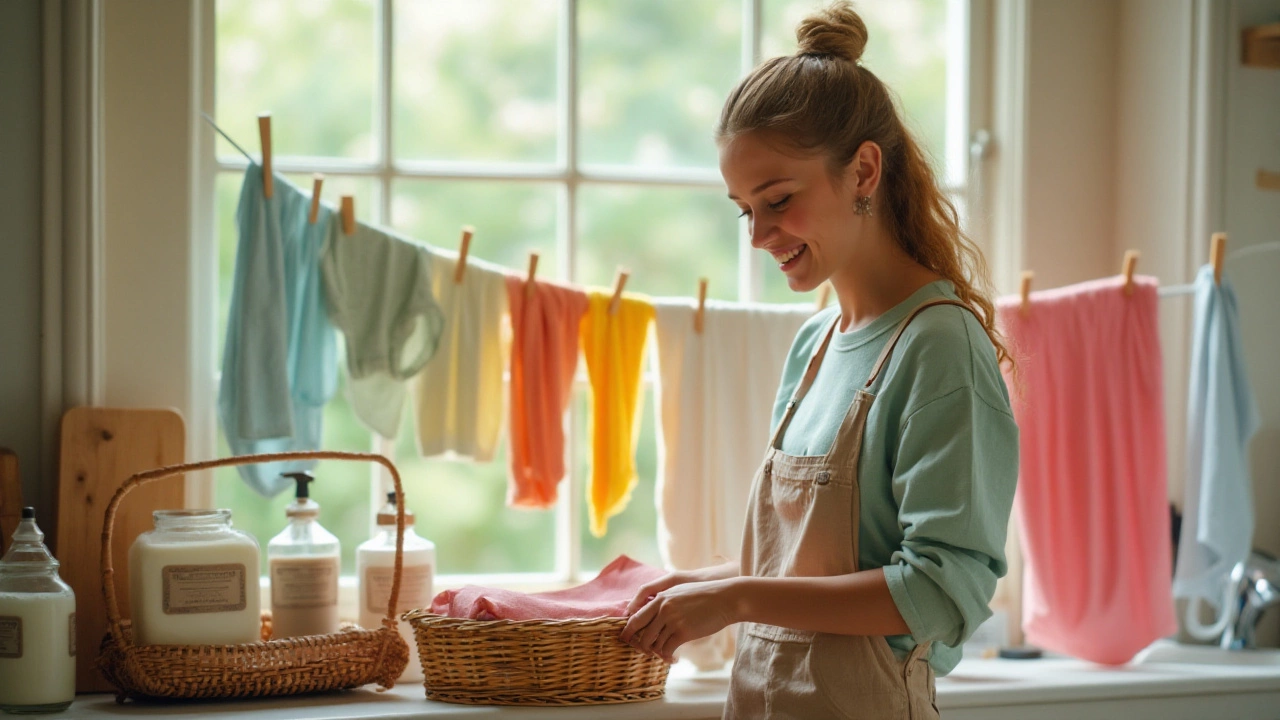
Reducing Waste in Cleaning Practices
Reducing waste in our cleaning routines is a vital component of living a sustainable lifestyle. It's not just about recycling; it's about rethinking how we consume and dispose of cleaning materials in our daily lives. Traditional cleaning products often come in disposable plastic containers, contributing significantly to environmental pollution. One primary way to cut down on waste is to choose products that come in refillable, reusable, or recyclable packaging. This slight shift in purchasing habits can lead to a dramatic reduction in the amount of waste generated.
There are also effective alternatives to the endless purchase of single-use wipes and paper towels. Consider switching to microfiber cloths, which are not only incredibly efficient cleaners but also washable and reusable hundreds of times. This switch can save both money and reduce the mountain of waste sent to landfills. In fact, according to a report by the Ellen MacArthur Foundation, less than 14% of plastic is recycled globally. Microfiber cloths might be your first step towards cutting ties with this grim statistic.
An essential practice in reducing waste is engaging in the practice of DIY cleaning solutions. Items such as vinegar, baking soda, and citrus peels can be used to create effective homemade cleaners that eliminate the need for purchasing new bottles. Plus, these natural alternatives are often more environmentally friendly and less toxic than their commercial counterparts. Encouraging households to mix their own concoctions can minimize the chemicals released into our waters, making a substantial environmental impact over time.
"Switching to reusable materials in cleaning isn't just a fad. It's a necessary step towards sustainability if we are to tackle the overwhelming waste problem," says Richard M. Thompson, an expert on environmental conservation.
Another strategy involves maximizing the use of products before disposal. For instance, using cleaning products diluted or in smaller quantities than recommended can significantly extend their lifespan. Furthermore, engaging in practices like composting organic cleaning waste from homemade solutions contributes to a more circular economy where waste is viewed as a resource rather than a problem. With these small changes, the home becomes a model of sustainable living.
Finally, consider supporting companies and brands with strong environmental commitments. Many small and large companies have embraced eco-friendly practices, such as using post-consumer recycled packaging, environmentally safe ingredients, and supporting global clean-up efforts. By choosing these brands, you send a market signal that encourages other companies to adopt more sustainable practices. Combining conscious consumerism with practical changes at home sets the stage for a brighter and cleaner future for our planet.
| Material | Decomposition Time |
|---|---|
| Disposable Wet Wipes | Over 100 years |
| Plastic Spray Bottles | 450 years |
| Biodegradable Cleaning Cloths | 1 to 5 years |
Embracing these practices not only leads to non-toxic cleaning solutions but also profoundly impacts the environment. Taking these steps reinforces the notion that living sustainably is not just feasible but imperative for the future well-being of our planet.
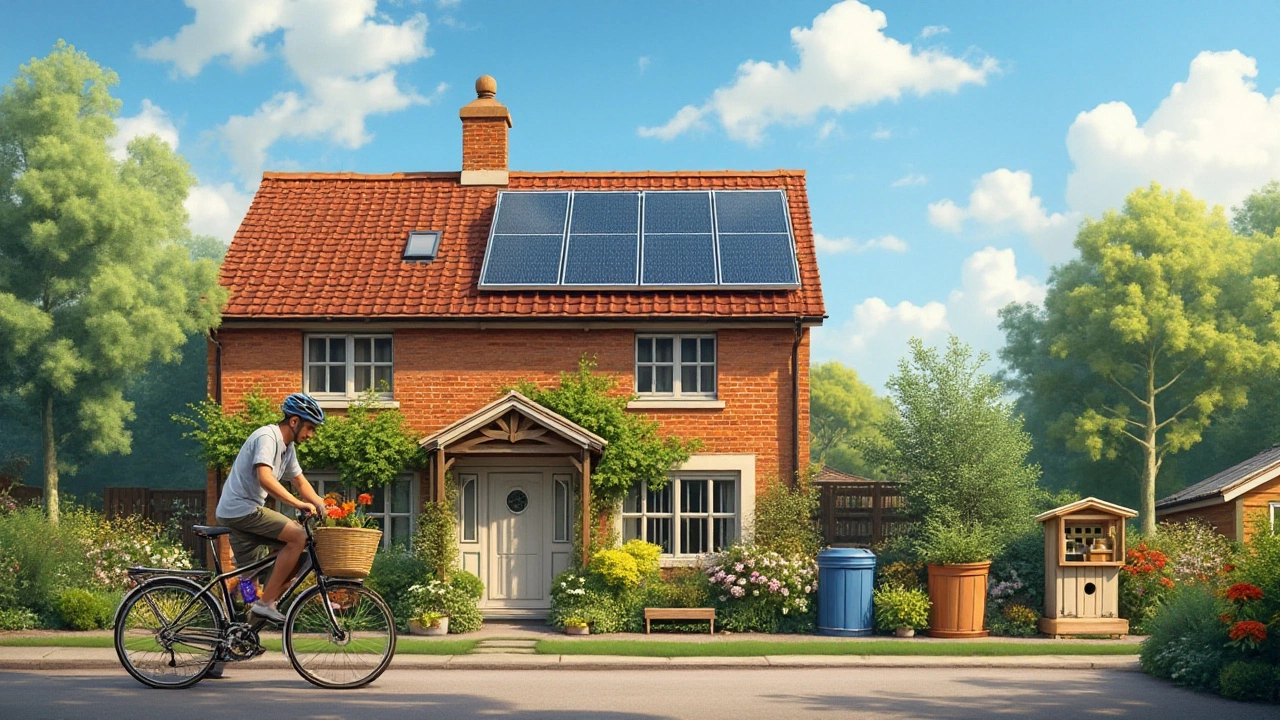
Energy-Efficient Cleaning Techniques
Becoming more energy-efficient in your cleaning routine isn't just good for the earth, it's also a savvy way to cut costs. An essential aspect of this is understanding how and when to deploy your appliances for maximum efficiency. Did you know that laundry machines and dishwashers consume the most energy when they heat water? Use this to your advantage by selecting the cold or eco-wash settings, which significantly cut down on energy use without compromising on cleanliness. Many modern washers have settings specifically designed to conserve energy, so take a minute to explore what options your appliances offer. Scheduling your cleaning activities during off-peak electricity hours can also make a difference to both the planet and your wallet. Consult your utility provider to understand when these hours occur in your area.
Let's talk about vacuuming—often an overlooked opportunity for efficiency. Many of today’s vacuums come with energy ratings. Choose one that has an 'A' rating, which not only makes them efficient but can actually lead to cleaner air in your home due to better filters. Regularly maintaining these appliances through emptying bins and cleaning filters will ensure they operate at optimum efficiency. This small action will make your cleaning tasks faster and more effective, which by itself is energy-saving. If you want to take energy saving a step further, consider switching to a manual carpet sweeper. While it might not replace your electric vacuum entirely, it can handle smaller tasks without using a single watt of electricity.
Lighting plays a crucial role too. We often clean during daytime, yet artificial lighting is often in use unnecessarily. Leverage natural light whenever possible; open the curtains and let sunlight do its work. Lighting isn’t only about visibility but also about atmosphere, and sunshine can improve both. When natural light isn't available, switch to LED bulbs which consume less energy and last much longer. Installing dimmer switches can also help save energy and adjust lighting to just what you really need, which can be a surprisingly effective energy-saving tactic. Most people also forget to turn off lights after a cleaning spree—a simple act, yet significant when multiplied over days and months.
Engagement with technology can further enhance energy efficiency. Smart plugs and timers can manage energy usage by automating when devices are turned on or off. Cleaning gadgets left plugged in unnecessarily draw power; utilizing technology smartly can cut down on this 'phantom load.' Automating your home cleaning schedule is not only convenient but also aligns with the green ethos by reducing energy use. Devices like robotic vacuums can run on a schedule, preferably during those off-peak hours. As technology advances, new cleaning tools emerge that are both time and energy saving. A study from the International Energy Agency noted that a widespread shift to available energy-efficient technologies could result in 10% energy savings in households while boosting productivity.
"Energy efficiency isn’t merely an option; it’s a responsibility that each of us holds to the planet," notes Jane Grimshaw, a senior environmental strategist at EcoSavvy Solutions.

